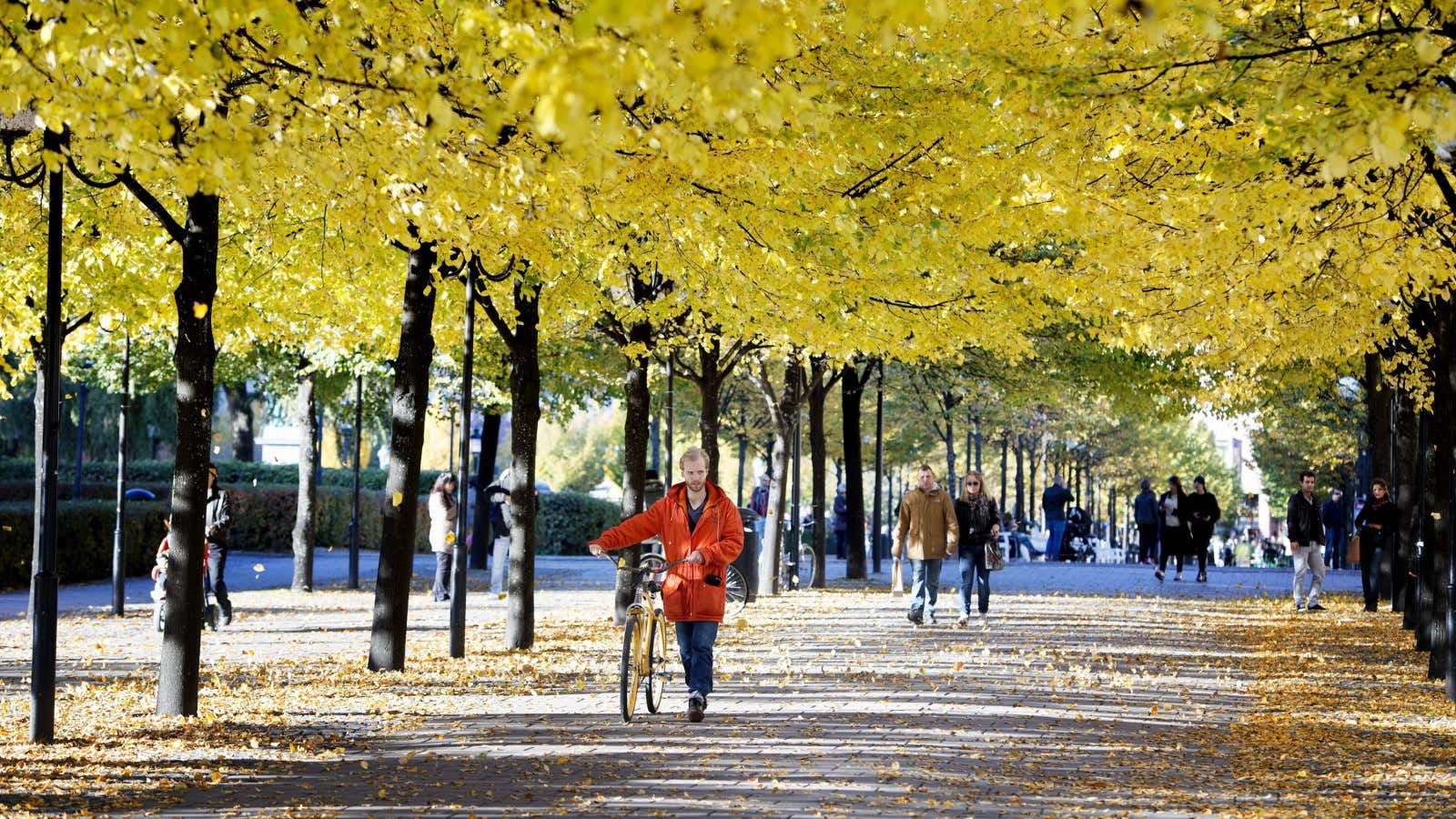Gustaf is walking uphill; I can tell because he’s out of breath. We’ve been speaking for a while and I worry for his health—he lives in a remote cabin near the Norwegian border, and his voice sounds like that of an older man. What if he collapses while we’re on the phone? Who will I tell? Other than his name and his extraordinary job, all I know about Gustaf is this: He’s from Sweden.
Sweden now has a phone number. It’s +46 771 793 336. And when I called it, Gustaf was one of the people who picked up.
When you dial Sweden’s new number, you first hear a recorded message: “Calling Sweden. You will soon be connected to a random Swede, somewhere in Sweden. This call may be recorded.” Then the phone rings. And, usually, someone picks up.
The answerers are a self-selected, unvetted group of Swedes. Each has downloaded an app that makes them available to receive redirected calls from around the world.
The Swedish Number is a full-on publicity gimmick by the Swedish Tourist Association. But gimmick or not, it works, bringing together two strangers for what can become a sudden moment of connection. And that, as I found during an afternoon of speaking to random Swedes, can feel magical.
Sweden is famous for progressive policies, like encouraging fathers to be more involved with childcare. So I asked the first person who picked up the phone if he was a dad. Turns out, Anders Nordahl is a 31-year-old father who’s taken leave from his jobs—at a nursery and as an actor—to care full-time for his 8-month-old son.
As he carries his child around the house he shares with his girlfriend in Gothenburg, Anders tells me about making the choice that she would go back to work. It was an economic decision (she earns more) and an emotional one—he wanted to bond with his son.
But this is a two-way conversation, not a classic interview. He asks about my life. We discuss Europe’s refugee crisis, and share feelings of helplessness. We talk about when to have kids, and what it feels like being a parent. We talk in a way you don’t normally talk to a stranger, for nearly an hour.
Did I ask about Ikea? Yes, Anders had been two days before (“It’s a bit sad!”), and had the meatballs. Are Swedes beautiful? They’re Nordic, so yes, if you like that kind of thing. Do they enjoy saunas? No, that’s the Finns. What about brunch? Fika, or hanging out over coffee, is indeed an important ritual.
My next call goes to Gustaf. Towards the end of our conversation, I learn he’s only 22. He drives 20 minutes every day across the border into Norway, to work a mincing machine in a factory that processes moose meat, among other things. Gustaf grew up in the city, but the pull of skiing and hunting drew him to Sweden’s wild countryside.
Not everyone loves the clean lines of classic Nordic design, it turns out. On another call, Jonas Nilsson, a 47-year-old computer programmer and beekeeper from Lund in the south of Sweden admits to crowding his walls with pictures and combing flea markets with his wife looking for old treasures. The blonde wood and white wall look is a bit “boring” he suggests.
Perhaps Sweden wouldn’t have said that, if I could have asked it. But it turns out you can’t call a country. You can only call people. And that’s wonderful.
